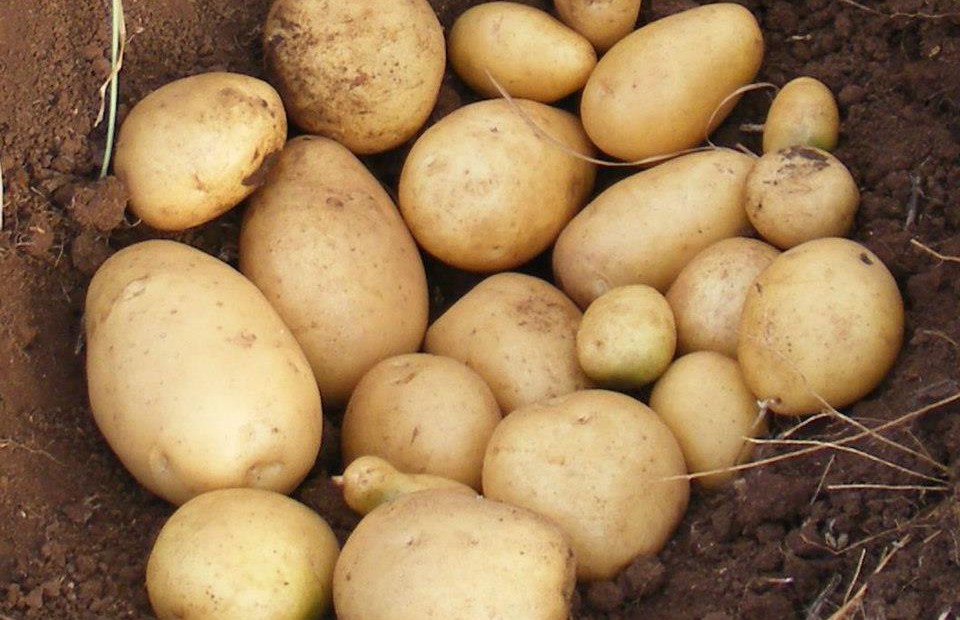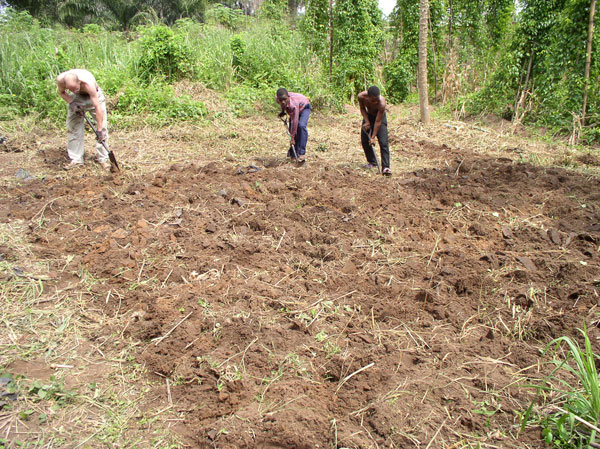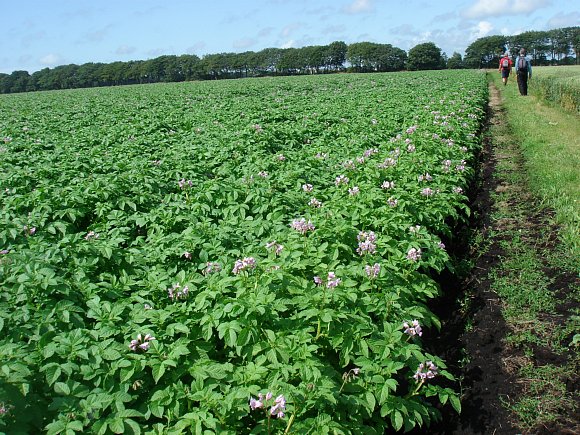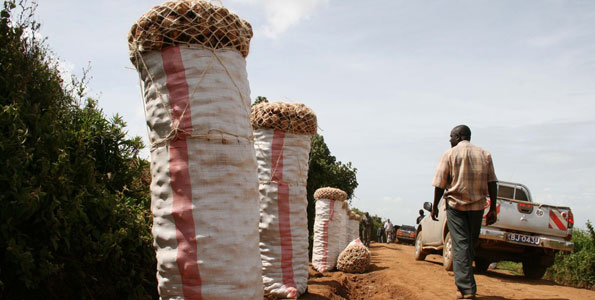Potato farming is one of those businesses that can either make or break you. You can get good returns provided you are willing to learn how to navigate your way up or you can literary “burn” your whole investment in less than 3 months. Read the next few paragraphs to find out the truth about this age-old business idea.
Potato Farming In Kenya
Potatoes are highland crops and they grow well in most major parts of the nation including Molo, Kinangop, Taita Hills, Yatta, Timboroa and parts of Laikipia.
Step 1: Getting Started
The first step is to find land in one of the high production areas. If you live in Nairobi area then you can think of going to places like Kinangop or North Nyandarua (an hour’s drive from the City). Remember, you don’t have to be a land owner to get started as you can simply lease. Currently, the cost of leasing a good chunk of land in Nyandarua about 1 Kilometre from the tarmac is Ksh15,000 per year.
Tips For Picking Land For Potatoes
- Should not be too far from tarmac (1-2Km recommended)
- Look for one with reddish soil (toney)
- Avoid land with a bad history of potato production
- Avoid land that lies adjacent to a river to minimize chances of frost bite
Step 2: Prepare The Land
Now that you have found a nice piece of land, the next step is to till it and prepare furrows ready for planting. Here again you don’t have to do all the work yourself. You only need to hire a few village labourers and delegate the job to them. If you’re too busy with your current job or business, you can pick one of your idle uncles from the village and hire them as the farm manager.
Another thing to do is to get some manure. Manure is normally sold in lorries (mostly from Masai land) and a good load goes for Ksh20,000 delivered to your place.
Step 3: Buy Certified Seeds
You may be tempted to take a short-cut by buying seeds from other farmers but you should know that this is the biggest mistake that most farmers make. If you want to get the best harvest, then you have to get the best disease-free seeds. A good source of these seeds is The Kisima Foundation…this is an organization that allows you to even pay by Mpesa and they deliver right outside your farm. The average cost of a bag of certified potato seeds is Ksh3,000.
Tips For Buying Seeds
- Only buy certified seeds
- Talk to local farmers about which breeds do well in the area around your farm.
- Examples of potato breeds are Tigoni, Kenya Mpya, Asante and Shangi
Step 4: Plant and Wait For 90 Days
The good thing with potatoes is that they only take 90 days to mature. But in order for that to happen (and in order for the yield to be profitable) you need to ensure that your crop is well watered either through rain or irrigation. Also, be sure to apply DAP fertilizer in combination with manure. Take care of the farm by weeding it. Lastly, you will need to invest in chemicals and yield boosters – and these you can buy from the agrovet shops. (Further Reading: How To Care For Potatoes In Farm)
Tips For Buying Chemicals
- Go for nematicides if you notice small wounds on potato roots
- Go for fungicides in case of signs of blight
Now from this point we can start talking business…
How To Get The Best Prices
It is one thing to plant potatoes; selling them and getting the best prices is another. Let me tell you something…in the potato world, there exists some sharp individuals called brokers.
They come with lorries and move from door to door buying farm produce at some punitive prices. The good thing with brokers is that they save the farmer the hassle of finding the market, but the bad thing is that the prices they give are sometimes unsustainable and that explains why many first-time potato farmers “burn”.
So what’s the secret to dealing with brokers? The first strategy is to plant your crop at around December so that you harvest it at around February or March when there is short supply and prices are favorable. For instance, right now as we write this a bag of potatoes is going for Ksh4,000 and above. However, the same bag of potato may fluctuate to as low as Ksh1,000 at the month of July.
Another strategy is that some government and non-goverment institutions are now building special granaries where you can keep your potatoes until the market stabilizes. You can take your produce there and hold until the ripple effects of a bumper harvest subside.
But what if you don’t want to wait or play with the seasons? If you can’t beat them join them. Using the many sales and marketing skills we equip you with here at Kuza Biashara, there is absolutely no reason why you should not look for your own market of potatoes. You simply need to approach fast-food chains, restaurants, schools, institutions etc and give them a good quote.
You can then hire a mguu kumi or mguu sita lorry and go back to the village where in addition to collecting your own produce you can link up with other farmers to fill up the lorry. This way, you will be in a position to dictate the price and you will be able to get better returns.
How Much To Invest
In total, you will require about Ksh80,000 for an acre of potatoes (from planting to harvesting).
How Much To Expect
The current market price for a sack of Shangi potatoes is Ksh4,000. An acre of land can produce 80 bags of potatoes in 3 months. So let’s do the math.
Ksh4,000 x 80 bags = Ksh320,000 (Revenue)
Ksh320,000 (Revenue) – Ksh80,000 (Expenses) = Ksh240,000 (Net Profit) in just 90 days.
Note that the recommended size of potato bag is 110Kilograms according to the National Potato Council of Kenya.
Final Word
Potato farming is a good venture. It is not a get-rich-quick scheme (though) and majority of first time investors may lose their money due to obvious mistakes. On a positive note, if you have read this article to the end you can now proceed to make an investment confident of making returns. All it takes is a bit of discipline, hardwork and strategy.
Do you think this is something you would like to try? What is stopping you from starting? Talk to me through the comments box below.






















